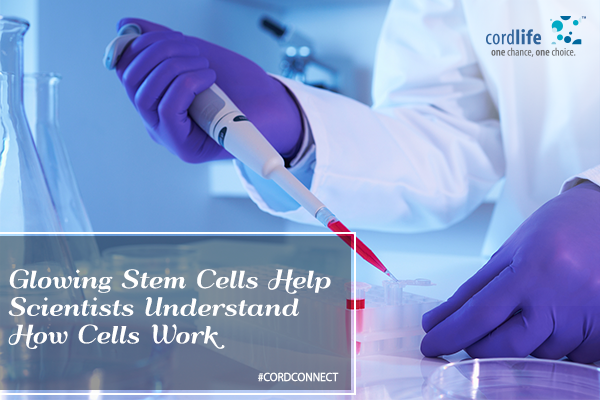Table of Contents
It’s tough to see the underlying problems with naked eyes when everything is going on smoothly. As soon as something goes wrong, we notice it, no matter how old the issue has been there. A human body is no different. Scientists are only able to study the cells, once they start acting weird. But the fact remains, if they get the access to study the healthy cells, they can contribute a lot to figure out how normal cells work and what it might take to keep them healthy.
The Allen Institute for Cell Science scientists have exactly done that. They invented a new technology in order to genetically alter human stem cells so that they glow! Yes, you heard it right. The gene-editing technology is called CRISPR/Cas9. The ultimate goal of the research team of the Allen Institute was to help researchers figure out how good-conditioned cells work and what happens when they start doing unwell.
The scientists inserted a genetic code into the stem cells so that they create fluorescent coloured proteins in the nucleus as well as in the mitochondria of the cells. When they tried to observe the stem cells under a fluorescent microscope, they found them glowing. The process promises a tool to study how human stem cells work in various organs.
Ruwanthi Gunawardane, The director of stem cells at the Allen Institute said, “We’re trying to understand how the cell behaves, how it functions, but flooding it with some external protein can really mess it up”, he added, “the CRISPR system allows us to go into the DNA—the blueprint—and insert a gene that allows the cell to express the protein in its normal environment. Then, through live imaging, we can watch the cell and understand how it works.”
The process of making the stem cells illuminated may sound easy but it required the team to run through several methods to finally come up with the full-proof tool. Previous experiments showed the cells flooded with fluorescent proteins and the results were unclear images.
The gene-edited stem cells can be used in a number of cases starting from improving on the regeneration process in organs and tissues to monitoring and treating drug users. However, the Allen Institute scientists have already started implementing them to study heart conditions. They used the illuminated stem cell lines to understand how differently stem cells act in heart tissues. They have introduced familiar disease-causing changes to the stem cells in order to know the dissimilarities between the healthy and unhealthy circulatory systems.
Rick Horwitz, the executive director of the Allen Institute for Cell Science said, “The number of scientists doing basic biology with stem cells is low, but the interest in using them to create disease-in-a-dish models is growing explosively. We think these cells will greatly enable that work.” He truly believes that gene editing will become one of the most popular tools in stem cells medical research.
The team has already built 5 types of glowing cell lines and has plans to create 20 stem cell lines by the end of 2017. Each cell line would be unique and would come with a unique cellular pattern. The genetically edited cells are available to scientists around the world.
